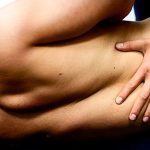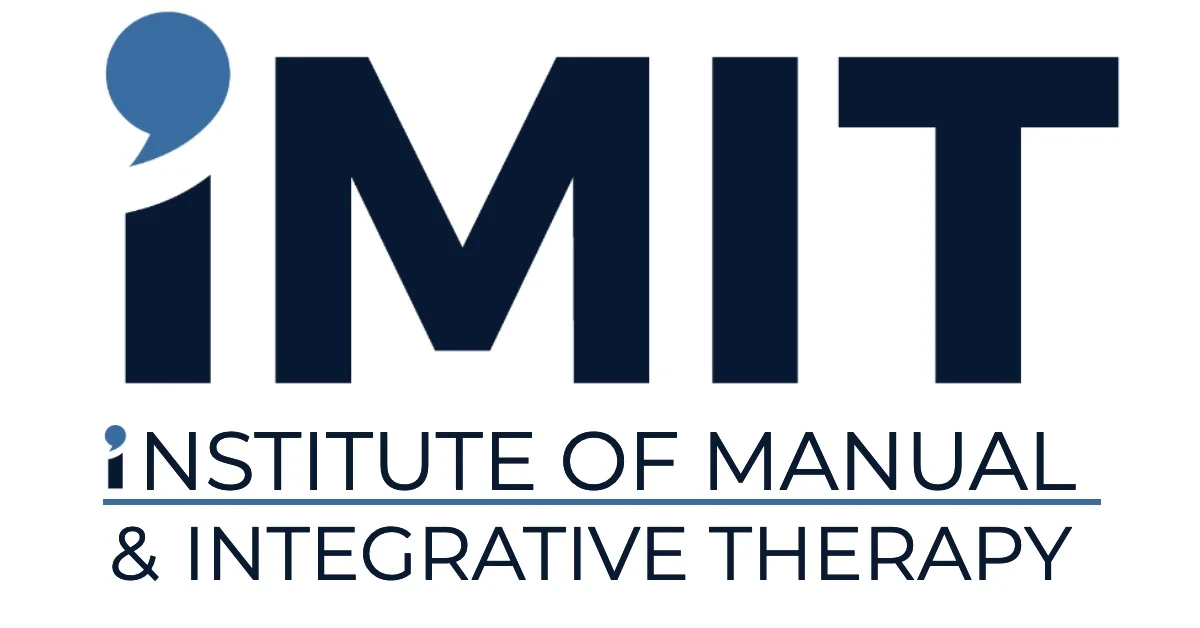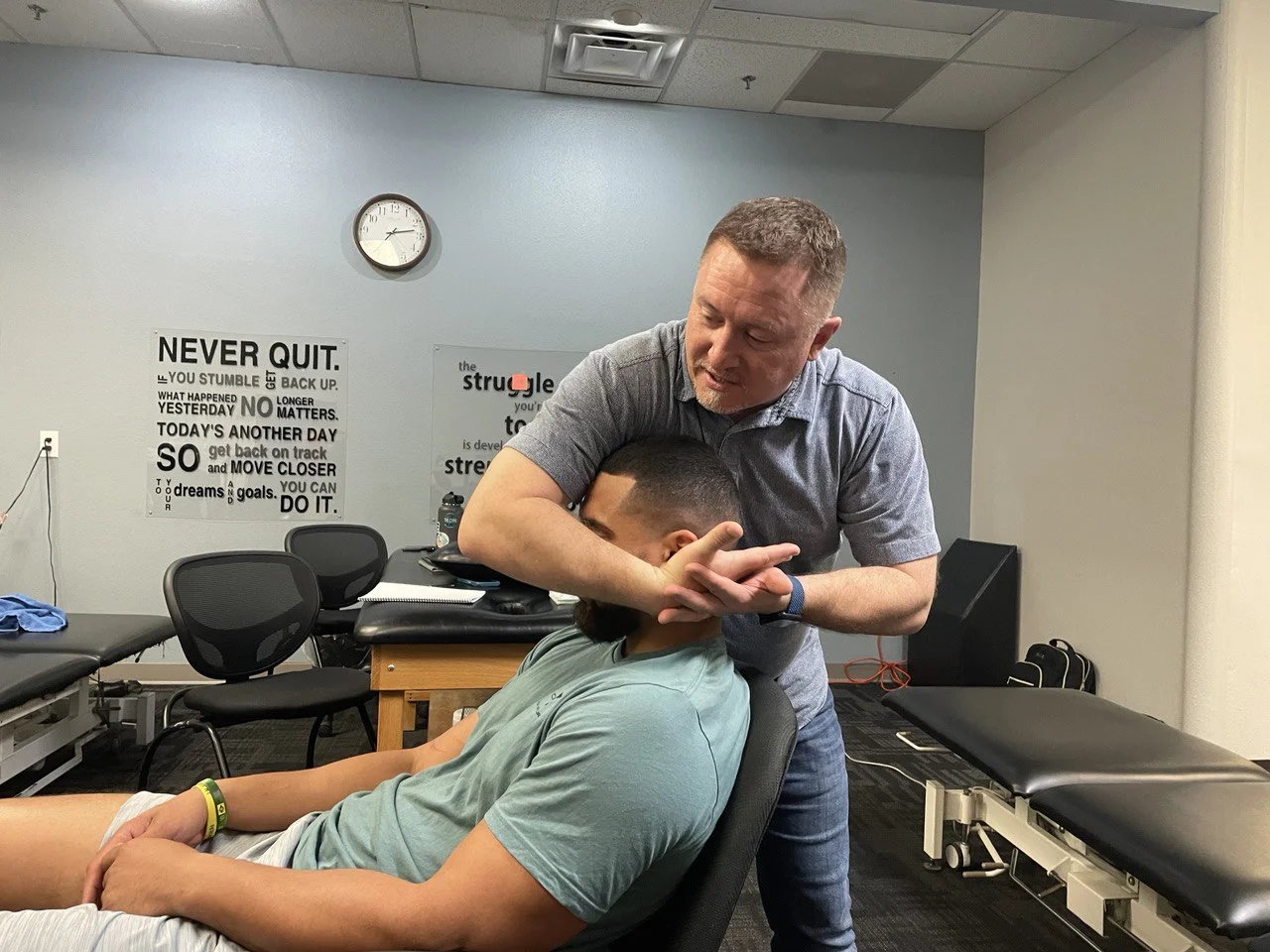The seminar is addressed to Physiotherapists, Osteopaths, Chiropractors and Physicians, graduates of Higher Education Institutes or Technological Educational Institutes, or equivalent schools.
Course’s language is English with simultaneous translation to Greek.
LLLC, EPIMORFOSIS intents to organize a HVLA Thrusts Techniques in Cervicothoracic & Lumbopelvic Region course with Dr. Sean O. Flannagan (MPTA/iM.IT Founder, Senior Instructor & HMNS/AACP Accredited Tutor).
The program of the seminar is exactly the same as the one that Dr. Sean Flannagan teaches in the USA.
The seminar lasts 3 days and will be held in Athens.
The cost of the seminar is 470€.
To finalize your participation, you have to prepay 170€.
The remaining amount of 300€ must be deposited at least 2 days before the start of the seminar.
Advanced Manipulation, Manual Therapy & Clinical Management Courses
Combined MM-A & MM-B Manipulation Series Courses:
- MM-A: Spinal Manipulation + Adv. Cervicothoracic
- MM-B: Spinal Manipulation + Adv. Lumbopelvic
This 3-day course is designed as a highly interactive practical, and theoretical approach to total spine care, with emphasis on high-velocity thrust techniques with supportive non-thrust and neuromuscular education components. Participants will learn essential motor skills to safely incorporate evidence-informed manipulation techniques for the spine (cervical, thoracic, lumbar, sacral) and major junctional zones (upper cervical, cervicothoracic, thoracolumbar, lumbosacral) or extremity manipulation immediately into clinical practice. Included will be a review of updated clinical practice guidelines to support clinical reasoning, as well as comprehensive neurological and red flag screening.
• The course will emphasize a differential evaluation of the cervicothoracic region, emphasizing clinical reasoning and pattern recognition. Additionally, multimodal treatments and patient progressions are supported with advanced thrust & non-thrust interventions and neuromuscular reeducation approaches specific to cervicothoracic dysfunction
• It will also emphasize a differential evaluation of the lumbopelvic region, emphasizing clinical reasoning and pattern recognition. Additionally, multimodal treatments and patient progressions are supported by advanced thrust & non-thrust interventions, and neuromuscular reeducation approaches specific to lumbopelvic dysfunction.
• Course participants will be presented with multiple unique alternative techniques explicitly designed for the larger patient, so providers of all sizes can easily be successful.
Agenda Items:
1) Lecture: Introductions & Goals of the Weekend
2) Lecture: Safety and Neuro-exam Review
3) Lab Neuro Examination with practice
4) Lecture: Cervical CPG/Exam Fundamentals
5) Lab Adv. C-spine/T-spine exam components
6) Lecture: When and Where to Manipulate
7) Lab Lower C-spine:
a) Feel and Build & Understanding Momentum-Induced Techniques for safety and comfort.
b) Building Tension & Barriers
c) Mid-cervical HVLAT
8) Lab T-spine seated/supine/side-lying techniques:
a) Upper thoracic supine HLVAT
b) Side-lying compression mobilization
c) Mid-ribs seated mob/manipulation
9) Lab Upper c-spine supine/seated:
a) C1-2 supine gapping manipulation
b) Segmental c/s mobilization through assisted trunk rotation in hook-lying
c) Upper c/s neuromuscular re-education seated/supine HEP
10) Lab Lumbar compressive manipulation w/ body drop
11) Lab Cervicothoracic Region prone/side-lying/seated/supine:
a) Prone CTJ traction CTJ
b) Side-lying compression mobilization at CTJ
c) Lower c-spine extension NMR w/ manual assisted OP supine/seat
d) Seated upper CTJ traction/extension/rotation
e) CTJ prone/supine/seated HEP progression
12) Review Session
13) Lab Cervical C0-1 Seated Lateral Scoop HLVT
14) Lab SI Joint kick-pull HVT
15) Lab Thoracolumbar junction impulse long sitting HVLAT
16) Lab Ribs
a) Supine ribs HAC (hands across chest)
b) Upper ribs through shoulder/elbow HVLAT
c) Lab: Review c/s and l/s set up and mechanics.
d) Lab Thoracic
e) Prone t-spine HVLAT
f) Prone rib HVLAT
17) Lab Prone CTJ graded mobilization w/ NMR progress & HEP
18) Lab Seated Posterior c-spine HVLAT
19) Lecture When and Where to Manipulate/Reasons for Failure
20) Lab Upper c-spine Neuro-weakness screen w/ facilitation/inhibition activities and HEP.
21) Lab OA/AA zygomatic contact HVLAT
a) OA/AA non-thrust rotation mob
b) C-spine rotational chin hold w neuromuscular re-education (NMR)
22) Lab Prone CTJ lateral break HVLAT
23) Lab C2-CTJ seated UPA mob w/ HEP progression

1) Lecture/Lab: Safety and Neuro-exam Review for the lower quarter
2) Lecture: Lumbar CPG/Exam Fundamentals
3) Lab Adv. L-spine exam components
4) Review lumbar compression body drop HVLAT
5) Lab: Lumbar & lumbosacral compression mobilizations with PNF patterns and NMR in side-lying
6) Lab: Lumbar flex NMR w/ mobilization strap w/ PNF principles reviewed.
7) Lab: t-spine HVLAT with foam roll modification
8) Review lower c/s HVLAT
9) Lab: lumbosacral junction kick-pull & kick push technique
10) Lab: t/s seated flexion/extension mobilizations w/ NMR
11) Lab: Lower quarter weakness screening w/ facilitation/inhibition activities and HEP.
12) Lecture. Lumbar vs. Hip Differential diagnosis
13) Lab: Hip axial compression/distraction/lumbopelvic hip NMR.
14) Lab: Side-lying de-rotation & lateral flexion mobilizations w/ NMR.
15) Lab: Modified t/s modified HVLAT through knees for the small practitioner.
16) Review C1-2 mechanics and technique
17) Lab: Lumbar protective bracing w/ hip extension NMR in hook lying w/ HEP progression.
18) Lab: Hip mobilization with mobilization belt.
19) Lab: Hip distraction manipulation w/ mobilization belt.
20) Review: TLJ long sitting impulse manipulation
21) Lab: Seated t-spine flexion-extension mobilizations with NMR.
22) Review: Prone CTJ techniques
23) Review: 5 reasons to use manipulation.
24) Round robin review.
25) Q&A session.
You can find more info on the link: Institute of Manual & Integrative Therapy
Watch the video:
Day 1
08:45 Registrations
09:00 Lecture: Introduction, Expectations & Goals for the Weekend
09:45 Indications, contraindications, reviews of vascular issues
10:15 Lecture: Neurological examination
10:30 Lab 1: Demonstration of neurological examination and workshop
10:45 C/S HVLT demonstration and first practice for participants
11:00 Lecture: Reasons for failure
11:15 Break
11:25 Lecture: Cervical CPG / Basic principles of examinations
11:50 Lab 2: Cervical and thoracic spine examination components for identifying and assessing segments
12:30 Lab 3: HVLAT Lower cervical spine – Lab 4: HVLAT Upper thoracic spine and mobilizations in sitting and side-lying
13:00 Break
14:00 Lab 5: HVLAT Upper cervical spine (C1–2) with neuromuscular re-education (NMR) – Lab 6: Lumbar spine HLVAT body drop + practice
14:45 Lab 7: Cervicothoracic junction HVLAT and NMR in prone, sitting, and side-lying
15:30 Lab 8: HVLAT Upper cervical spine (C0–1) seated – Lab 9: Lumbar spine and SIJ HVLAT, kick-pull approach
16:15 Break
16:30 Lab 10: Thoracolumbar junction HVLAT seated – Lab 11: HVLAT with arms crossed (supine), Posterior-Anterior rib approach and Anterior-Posterior rib approach
17:15 Review of upper cervical HVLAT and lumbar compression techniques – Round Robin / Review
18:00 End of day
Day 2
09:00 Questions & answers
09:15 Lab 12: Prone thoracic spine HVLAT, ribs and NMR, and mobilization grading for upper thoracic spine
09:50 Lecture: When and where to apply manipulation – Lab 13: HVLAT Modified seated Gonstead approach
10:20 Demonstration: Upper quarter neurological exam with facilitatory/inhibitory influences and NMR – Lab 14: Seated cervical spine and thoracic mobilizations with NMR, HEP for upper cervical spine
11:00 Break
11:15 Lab 15: HVLAT C0–1 supine zygomatic contact followed by non-thrust and NMR – Lab 16: Modified foam-roll thoracic manipulation and modified kneeling thoracic technique
11:45 Review and practice of neurological examination – Lecture: Lumbopelvic/SIJ exam components and practice
12:15 Lab 1: Lumbar spine HVLAT compression with body drop – Lab 2: Supine thoracic HVLAT (three variations)
13:00 Break
14:00 Lab 3: Seated thoracic mobilization with NMR
14:30 Lab 4: Lower cervical spine review and practice
15:00 Lecture: Speed drills and lower quarter neurological exam with facilitatory/inhibitory influences and NMR
15:30 Lab 5: Lumbar spine compression mobilizations and NMR
16:00 Lab 6: Prone thoracic rotation HVLAT review with one variation
16:45 Lab 7: Hip distraction HVLAT with and without belt, followed by non-thrust mobilization and gluteal NMR and HEP activation
17:00 Round Robin / Review of the day
18:00 End of day
Day 3
09:00 Questions & answers
09:20 Lab 8: HVLAT Upper cervical spine (C1–2) Review
09:45 Lab 9: Lumbar spine HLVAT kick-pull and kick-push variations
10:15 Lab 10: HVLAT Upper cervical spine (C0–1) seated review
10:45 Lab 11: Thoracic spine compressive mobilizations in side-lying
11:15 Break
11:30 Lab 12: Hip non-thrust longitudinal mobilization with belt and variations
11:45 Lab 13: NMR PPT with belt and PNF
12:15 Lab 14: Glute activation, NMR, and isolation with HEP
13:00 Break
14:00 Lab 15: Seated cervical spine HVLAT review
14:30 Lab 16: Side-lying hip traction mobilizations and lumbar transverse mobilization approaches
15:00 Lab 17: Seated thoracolumbar junction thrust techniques (two variations)
15:30 Lab 18: Seated thoracic NMR and mobilizations
16:00 Lab 19: Side-lying lumbar extension NMR and traction mobilizations
16:45 Questions & answers
17:00 Round Robin / Review of the day
18:00 End of day
1. Credit or Deposit card payment
You can deposit the down payment or the total fee via credit or deposit card (Visa & Mastercard) from the webpage of each course, through VivaPayments.
You are solely responsible for the proper entry and the genuineness of your credit/deposit card’s details. EPIMORFOSIS bears no responsibility in case of any error.
Any payment commission is charged to EPIMORFOSIS
2. Deposit – Transfer to our bank account.
Since the banking system now requires Verification of Payee (VoP) for every transaction, for your convenience, you may complete it using the TAX REFERENCE number of EPIMORFOSIS, which is 800551451
You can deposit or transfer the requested amount for your registration to the following accounts, writing your full name in the field “Reason for the Beneficiary”:
PIRAEUS BANK:
ΙΒΑΝ: GR5501722380005238070348955
SWIFT(BIC): PIRBGRAA
NATIONAL BANK of GREECE:
IBAN: GR6801102170000021744103439
SWIFT(BIC): ETHNGRAA
ALPHA BANK :
ΙΒΑΝ: GR4801407080708002002013410
SWIFT(BIC): CRBAGRAA
EUROBANK:
ΙΒΑΝ: GR4502600370000010201090153
SWIFT(BIC): ERBKGRAA
Beneficiary: EPIMORFOSIS KENTRO EPIMORFOSIS STELECHON YGEIAS OE
3. Payment via IRIS.
You can complete the payment for your order through the IRIS online payment service.
TAX REFERENCE EPIMORFOSIS: 800551451
The bank transfer fee charged to EPIMORFOSIS
1. A certificate of attendance, a degree or a diploma will be issued.
2. Printed handouts are provided (notes or relevant book).
3. In case of cancellation of the seminar due to EPIMORFOSIS’s responsibility, deposited fees will be refunded immediately.
4. EPIMORFOSIS reserves the right to change the date or postopone seminars, informing participants by phone and / or sms & e-mail. In such a case participants are entitled to request full refund of their fees if they do not wish to attend the seminar on the new date or to use this amount for their participation in other seminars or services of the company.
5. In the event of a strike, government’s bans, heavy bad weather, and generally any event beyond the reasonable control of the organisers which impedes the execution of part or all of the seminar, the organizers reserve the right to change the date and time of the event. In this case the fees are not refundable but are valid as they are.
6. Cancellation of participation due to participant’s responsibility is possible only by email, as follows:
• up to 30 days prior to the start of the seminar, all deposits are refundable.
• up to 15 days prior to the start of the seminar, 50% is refundable.
• no refund after this deadline, exceptions could be only by decision of EPIMORFOSIS.
7. The realisation of the course will be confirmed by email or/and sms to be sent to participants, in time.
8. It is advised to not buy your flight tickets until you receive this confirmation email (or/and sms).
9. LLC-1 EPIMORFOSIS keeps the right to change course venues.
You can make your own reservation declaring the name of Εpimorfosis.
Hotel Delfini**
More information: Tel.: +30 210 94 15 364 & 94 15 373

HVLA Thrusts σε Σ.Σ. & Πύελο – Dr Sean Flannagan – ΑΘΗΝΑ 2026
Price range: €170.00 through €470.00
EPIMORFOSIS justifies its name by providing high quality courses. George Karampalis operates more like a constant “trainee” and less like an entrepreneur, and this is an additional positive fact in the effort that is put by the workers and teachers of EPIMORFOSIS.
I have known George Karampalis and EPIMORFOSIS for many years. I’ve had the opportunity to join several clinical courses and I can argue that, at the level of organisation and selection of trainers, they have a high level of recognised prestige.
My first steps in professional specialization started with EPIMORFOSIS and continue. It has been with us all these years, covering the need for modern and documented knowledge, in collaboration with internationally acclaimed educational institutions.
The best physiotherapists training institution. It enables the development of the necessary knowledge for clinical reasoning. High-quality training without having to travel abroad.
Training, a steady value for more than twenty years now, leads physiotherapy and keeps it at a very high level, well done to George Karambalis and his associates, we owe a lot to all of you.
EPIMORFOSIS organizes specialization seminars for rehabilitation professionals. I’ve watched a lot. I strongly recommend you trust EPIMORFOSIS for your specialization and lifelong information.



 Smart
Smart